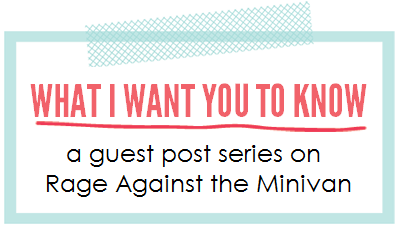Last year, my father contemplated suicide. Two weeks later, my husband was in the hospital to prevent the very same thing. I don’t tell you this because I want you to feel bad for me – for us – I tell you because it’s important to share. They each have their own individual struggles, but they are not alone. They have us. They have our community.
Mental illness is something you hear about in the news and entertainment fodder. We have all heard Howie Mandel talk about his struggles with OCD, and many of us read when Catherine Zeta Jones, and more recently, Jesse Jackson Jr., came out with news of their bipolar II disorders. And there are historic figures too, many artists who struggled with one or more mental illnesses. People such as Edgar Allan Poe and Ernest Hemingway, the latter of whom lost his battle with depression, committing suicide at age 61. But you really never hear about it at home, do you?
It is scary to admit – to myself and others – but mental illness runs on both sides of my family. There is a lot to still learn, but it is generally accepted that these kinds of illnesses are hereditary. Will I pass it on to my children? That is the question that haunts me most of all, though there are many other fears as we enter into parenthood.
The thing is, there’s no cure. Yes, there are really great medicines. There are great treatments. And of course therapy. But the struggle never really goes away. Robby – my husband and the love of my life – has bipolar II and OCD disorders. My father suffers from depression and anxiety. They both have to actively push out the bad thoughts, and constantly remind themselves of things that you and I take for granted.
A friend recently asked me to dinner. She was dating someone new, someone with bipolar I. She didn’t necessarily want advice, just a friend. Someone who understood. She wanted to commiserate, to vent. To ask questions.
Here is what I told her: you can’t do it alone. Family and friends are the reason we move forward. I can tell you 5 people that would drop everything – have dropped everything – to help us in moments of crisis. A cousin sat with me in the waiting room. A friend carried Robby into the hospital when he lost feeling in his legs due to a bad combination of meds. A doctor sent regular text messages to check-in, and my rabbi called to do the same. A girlfriend joined me for a bottle of wine. A doorman paid for a cab when we didn’t have cash and the credit card machine was broken coming home from the hospital.
You can never give up. I am decidedly 95% patient. Every so often – 5% of the time – I lose control. It’s hard. I cry. I don’t understand. But I never give up. I have no way to understand what you’re possibly going through, but I know it hurts. I can see it in your eyes, I can see your body tense up when you walk by a homeless person, when you see a red splotch on the ground. I can hear the tension in your voice, the frustration and anguish. I’ve heard your Plan. I’ve hidden knives. I’ve flushed pills down the toilet. But I never give up.
Finally, be aware. Ask your boyfriend to be aware. Self-awareness is so important. Understand what you’re going through. Understand how you feel. Go to therapy as a means of confronting your feelings. Understand the connection between the physical and mental. Your back hurts, you’re lonely. You’re sad, you feel you can conquer the world. If – as someone with mental illness – you can articulate how you feel at all times, you’re golden. The rest of us can help if we understand how you’re feeling, and more importantly, why. What triggers have caused you to feel that way. Did you get enough sleep? Did you get too much sleep? Did you have caffeine? Did you take your medicine an hour late?
I couldn’t do it alone. We couldn’t do it alone. But we’re not alone. We’re together. Family, friends, doctors, community. We’re together. Each day, one day at a time, we move forward. Always forward. We are stronger, closer. We fight hard, we never give up. And we do it all together.

